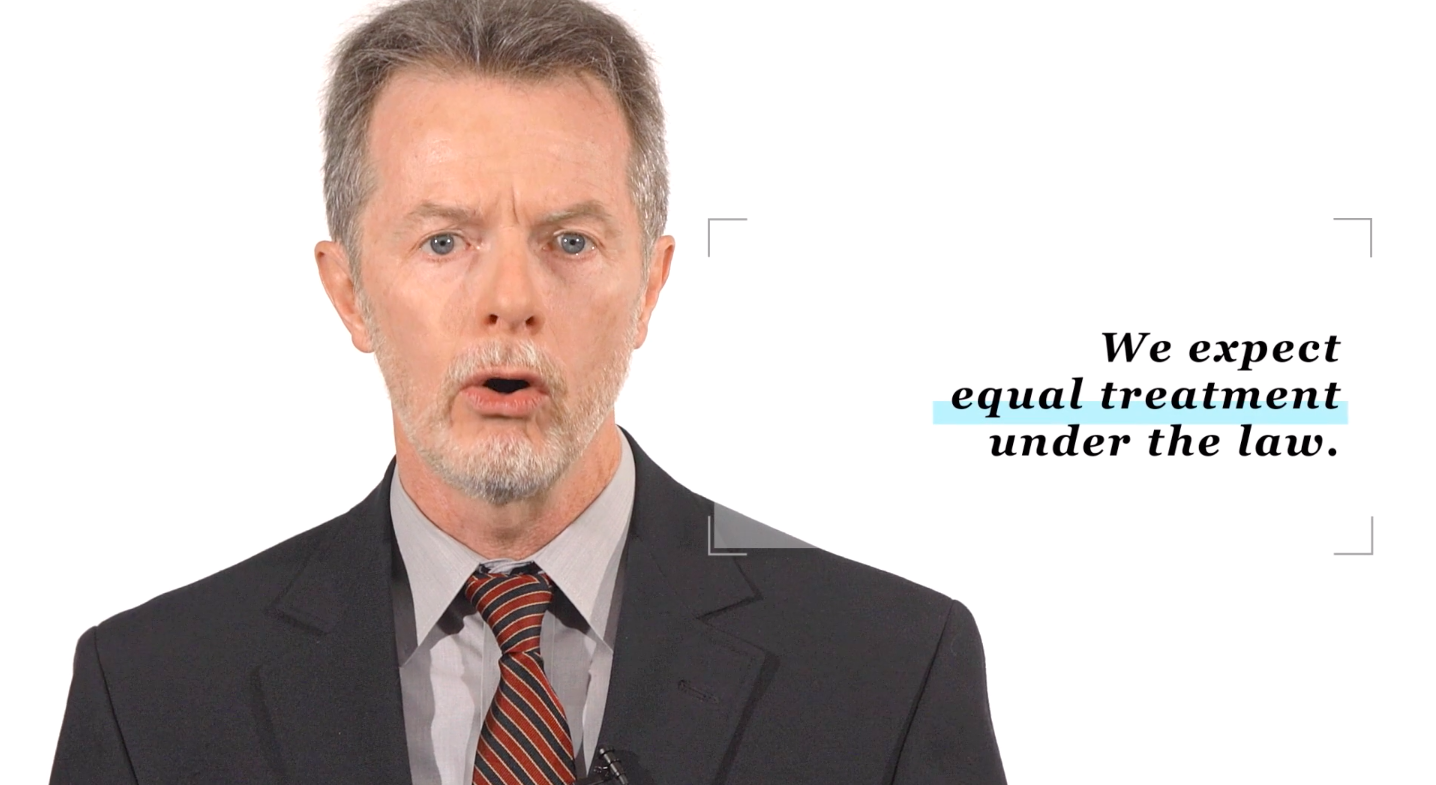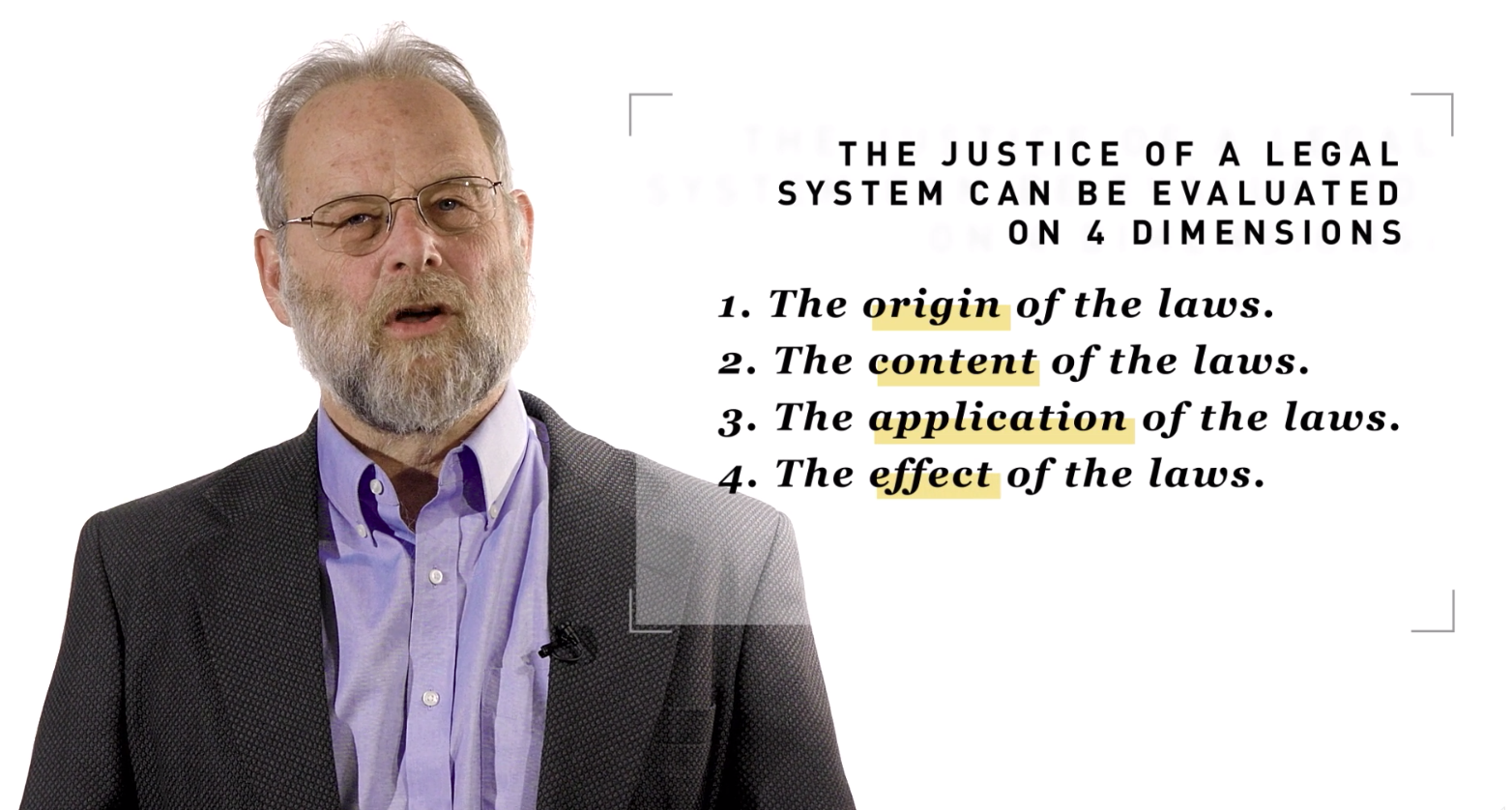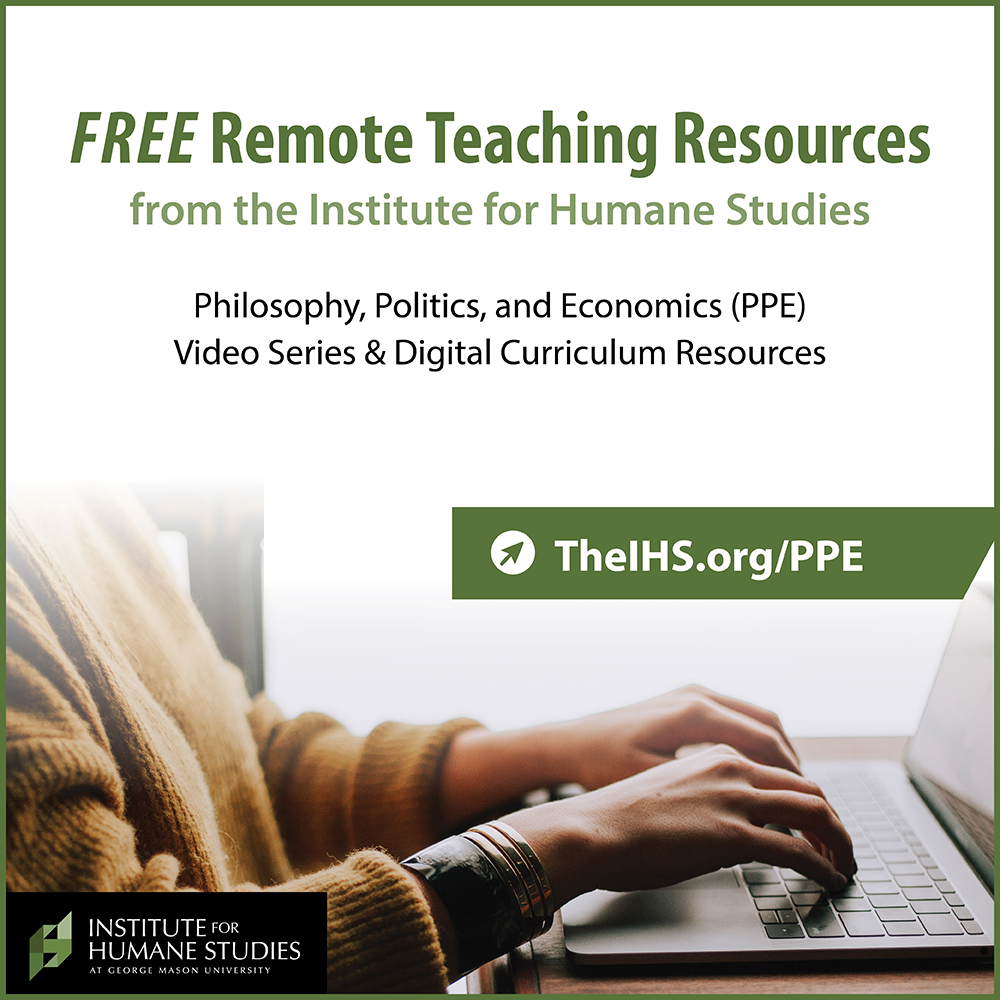New Video Series Helps Faculty Teach Philosophy, Politics, and Economics
23 Videos Feature Scholars from Around the Country

As universities ramp up online learning capabilities in response to Covid-19, the Institute for Humane Studies (IHS), an educational non-profit, is offering professors a free video series of philosophy, politics, and economics lessons. Professors, teaching assistants, and students can access the videos by entering an email address on TheIHS.org/ppe.
In modules on Game Theory, Equality, Justice, How Markets Work and Fail, Public Choice Economics, and Markets on the Margin, experienced professors walk through foundational topics.
Videos to Support Remote Teaching
“Imagine two cars are driving down a road toward one another and will soon meet,” Christopher Coyne, professor of economics at George Mason University, says at the beginning of an video on Coordination Games. He shows viewers an animated payoff matrix illustrating the two drivers’ choices. By the end of the eight-minute video, Coyne has explained Nash equilibria, network effects, and mechanisms to solve coordination problems.
In a five-minute video on Justice and the Law, Geoff Sayre-McCord, philosophy professor at the University of North Carolina at Chapel Hill, outlines the four dimensions by which any legal system should be evaluated: origin of the laws, content of the laws, application of the laws, and effect of the laws. “The question to ask if we’re concerned with justice is: Who has a right to what?” Sayre-McCord says.
“What should something cost? Are high prices immoral?” Michael Munger, political science professor at Duke University, asks in a video on Price Gouging. Thirty-four states have laws against price gouging; but in his five-minute video, Munger asks viewers to consider how high prices help solve the problem of scarcity. “I hope that you never have to deal with price gouging,” Munger says. “But if you are in trouble, you should want the price mechanism to be working on your side, encouraging the rest of the world to provide more of the things you desperately need.”
David Schmidtz, philosophy professor at the University of Arizona, begins his lesson on Liberalism and Equality of Opportunity with a reminder that Europe once believed in a strict class system. “Nobles and aristocrats had rights and privileges that common people didn’t have,” Schmidtz says. Liberalism in the 18th and 19th centuries introduced the idea that human beings are created equal and should have the opportunity to advance on their own merits.
Other videos cover topics like rent-seeking, special interest groups, distributive justice, and more.
Ramping Up Online Teaching Capabilities
Covid-19 forced most colleges and universities to quickly pivot to online classes in March. Now schools are expanding their online teaching capabilities to prepare for the possibility campuses might remain all or partially closed this fall. Brown University, for example, has one Covid-19 working group focused on improving the online learning experience and another focused on reopening campus. Christina Paxton, president of Brown University, told the Brown Daily Herald the university wants to prepare to be completely reopened, completely remote, or a hybrid of the two.
Even if campus buildings are open in August or September, the continued threat of Covid-19 may prevent students from attending all classes in-person. Dr. Anthony Fauci, director of the National Institute for Allergies and Infectious Diseases, said in April he “fully expected” schools would be open in the fall; but he cautioned that “it’s going to be different… because this is not going to disappear.”
Higher education leaders must design thoughtful, innovative education solutions that fill emerging gaps created by Covid-19. Accessible resources like IHS’s Philosophy, Politics, and Economics video series can help faculty teach remote students through the crisis—however long it lasts.
The Institute for Humane Studies is an educational nonprofit that partners with professors to promote the teaching and research of classical liberal ideas and to advance higher education’s core purpose of intellectual discovery and human progress. Learn more at TheIHS.org.






